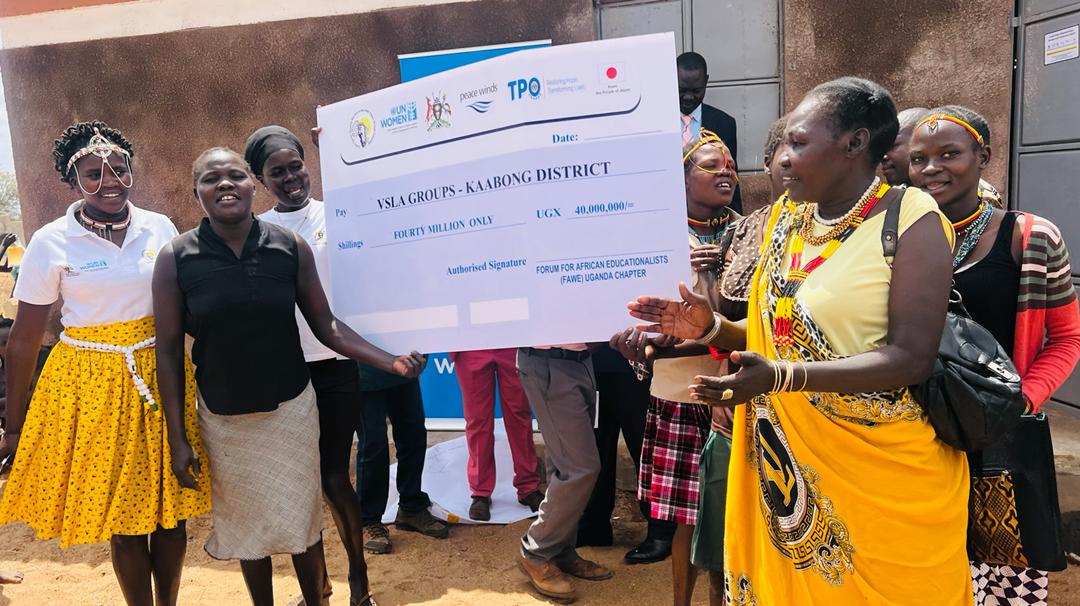Lokur Pasca's Life Transformed: From Domestic Violence to Entrepreneurship and Education
Date:

Lokur Pasca's narrative illuminates the profound impact of addressing social norms and empowering women to tackle the challenges that beset them. Once entrenched in a cycle of domestic violence and financial strife, Lokur's trajectory shifted dramatically through her engagement with the UN Women Uganda's Leadership Empowerment Access and Protection (LEAP) Project. Supported by the Government of Japan and executed in partnership with the Forum for African Women Educationists (FAWE) Uganda Chapter, the LEAP project is dedicated to bolstering emergency protection, leadership, service access, and empowerment for women and girls grappling with the intersecting crises of drought and displacement in Uganda. Lokur is among 2,750 women and girls positively touched by this initiative.
Residing in Longoromit parish, Kabong district, Lokur Pasca, aged 29, reflects on her journey toward a more promising future. In bygone days, Lokur and her spouse sought refuge in alcohol, fostering frequent conflicts and a toxic atmosphere within their home. Instances of domestic violence and child abuse marred their family dynamics, casting a pall over their household. Yet, in 2023, Lokur and her husband underwent transformative training sessions on savings and social norms facilitated by FAWE under UN Women's LEAP project. These sessions granted them fresh perspectives on violence, paving the way for a more harmonious and supportive relationship.
The economic empowerment facet of the project, backed by the Government of Japan, entails equipping women with financial literacy and organizing them into savings and lending collectives.
This facet significantly propelled Lokur along her empowerment journey. Through active participation in her village's savings and loans group, Lokur accessed capital to launch a thriving local brewing enterprise, markedly enhancing her family's economic stability. This newfound financial autonomy empowered Lokur to invest in her children's education—a dream previously stifled by societal norms and financial constraints.
Initially resistant to the idea of schooling for their offspring, Lokur's husband underwent a gradual transformation in perspective, catalyzed by FAWE's inclusive approach and emphasis on education. His receptivity burgeoned notably after his involvement in social norms dialogue sessions tailored for men within the community. This shift paved the way for him to embrace the notion of educating their children. Leveraging a loan from her savings group, Lokur procured educational supplies, enabling their two sons to embark on their scholastic journey at the onset of the February 2024 academic calendar.
With her children now enrolled in school, Lokur remains resolute in her commitment to the savings group, recognizing its pivotal role in underpinning her children's educational pursuits. As she casts her gaze toward the horizon, Lokur harbors potent aspirations for her offspring that transcend familial bounds, envisioning a future wherein her children ascend to leadership positions within their district. Committed to sustained engagement in the savings group, Lokur envisions a brighter future for her family, forged through collective endeavor alongside other women.